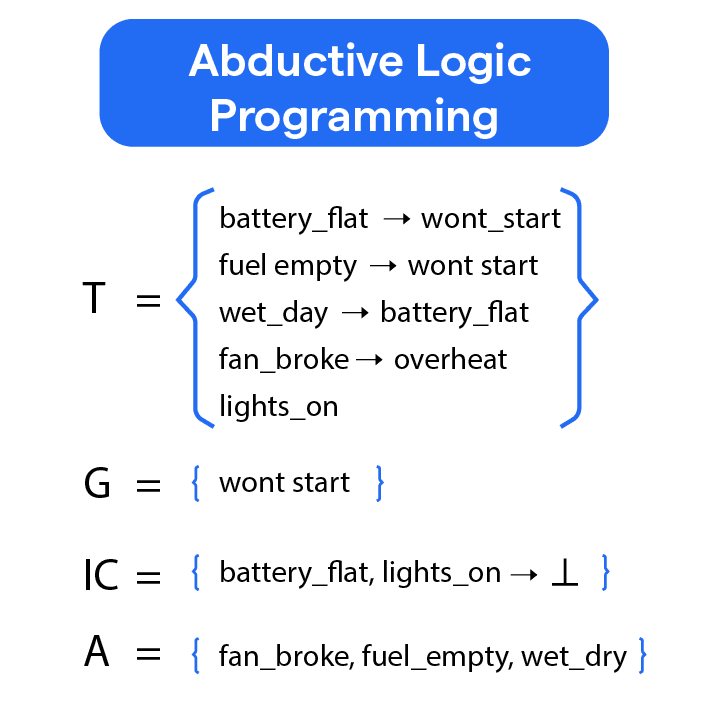What is Abductive Logic Programming?
Abductive Logic Programming (ALP) is an extension of logic programming that incorporates abduction to generate new hypotheses based on available information. In this glossary, we'll delve into the essential terms and concepts related to ALP.
What is Abductive Reasoning?
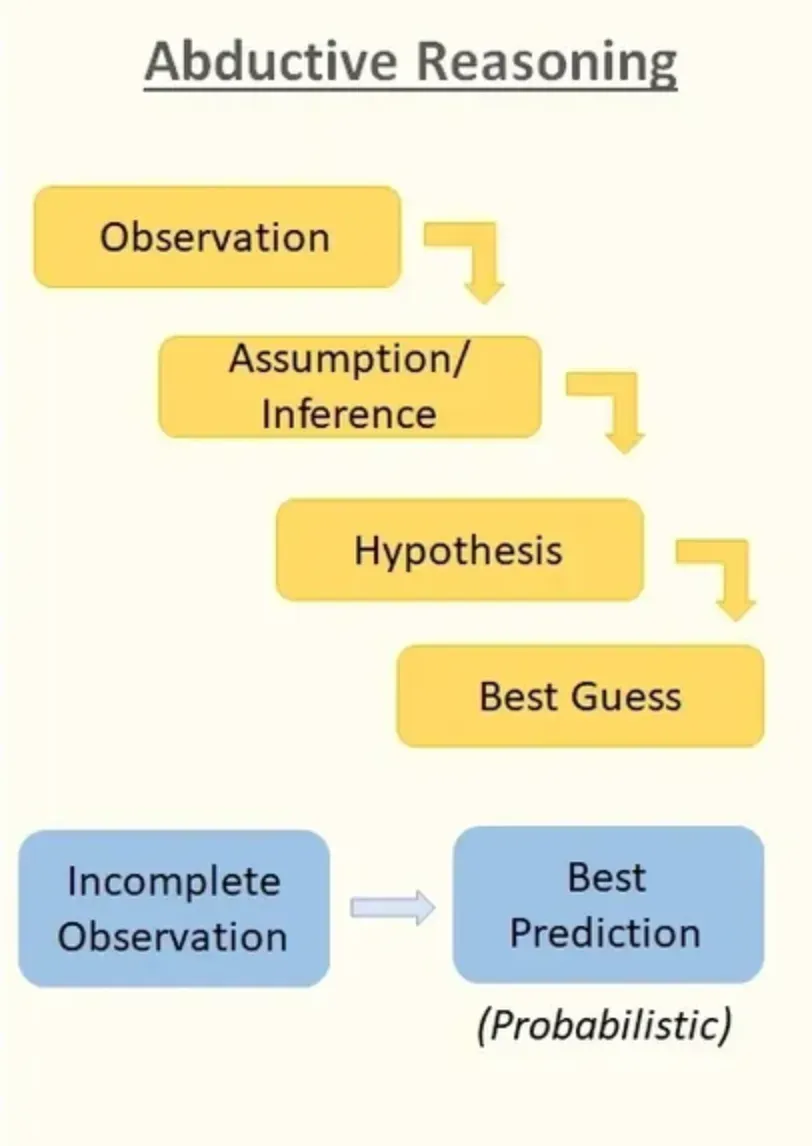
Abductive reasoning is a form of logical inference that allows one to generate possible explanations for a given observation. It is considered an "inference to the best explanation" as it takes available evidence and tries to derive the most plausible hypothesis.
Logic Programming
Logic programming is a programming paradigm based on formal logic, where programs are represented as a set of logical expressions, and execution is based on inference rules.
Applications of ALP
Abductive Logic Programming is used in various fields, including artificial intelligence, automated reasoning, natural language processing, and expert systems, to model and solve complex problems.
Key Concepts in Abductive Logic Programming
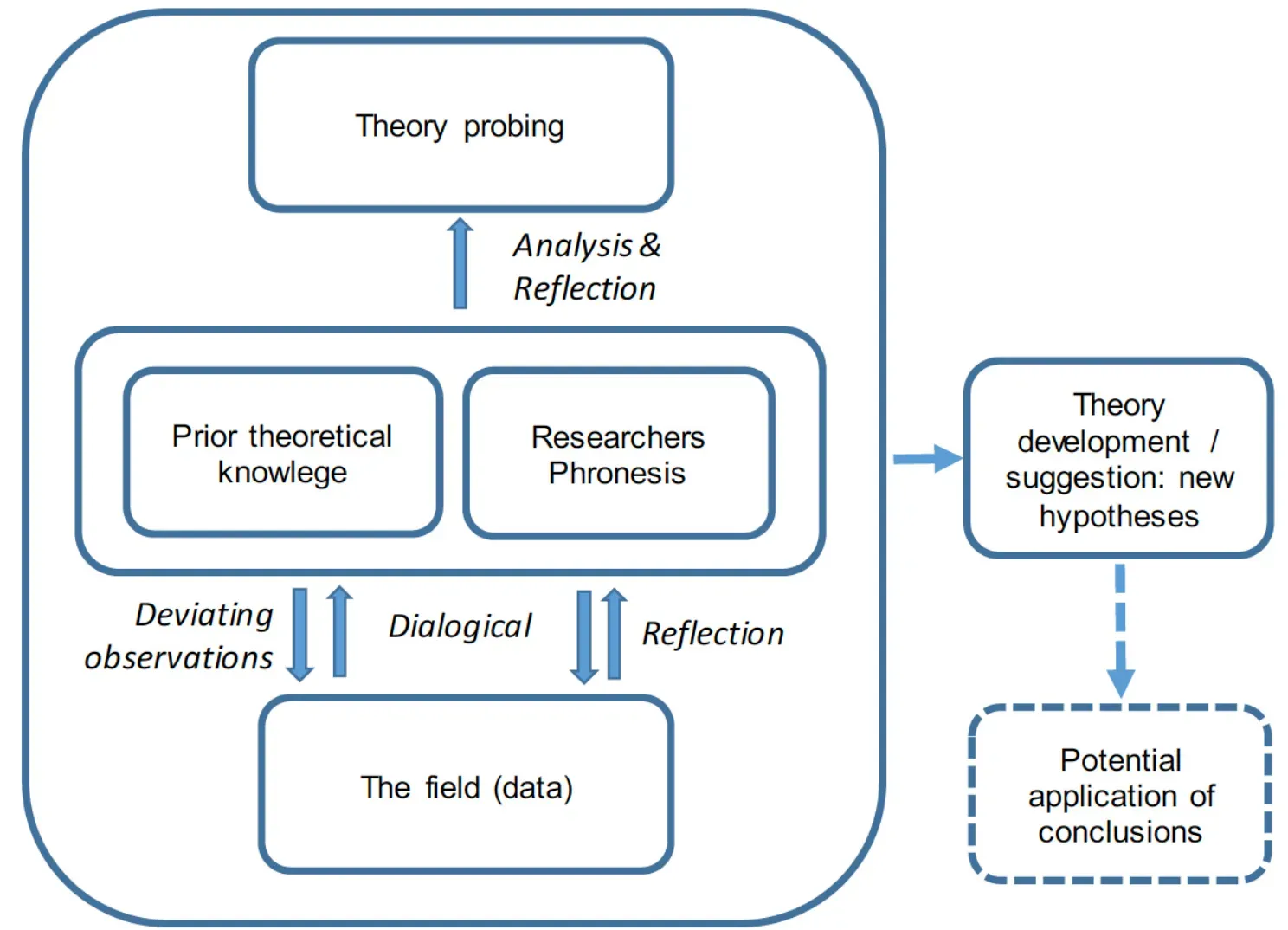
Understanding ALP requires familiarity with key concepts and constructs used within the framework.
Abductive Framework
An abductive framework is a formal system consisting of a logical theory, a set of abducible predicates, and an abductive integrity constraint. This framework provides the basis for performing abductive reasoning within ALP.
Abducible Predicates
Abducible predicates are special predicates whose truth values can be altered or "abduced" as part of the abductive reasoning process. They allow the system to generate new hypotheses that may not be explicitly represented in the logical theory.
Abductive Integrity Constraints
Abductive integrity constraints are a set of logical formulas that specify the conditions that must be satisfied by potential abductive hypotheses. They ensure that only consistent and plausible hypotheses are generated.
Abductive Inference Process in ALP
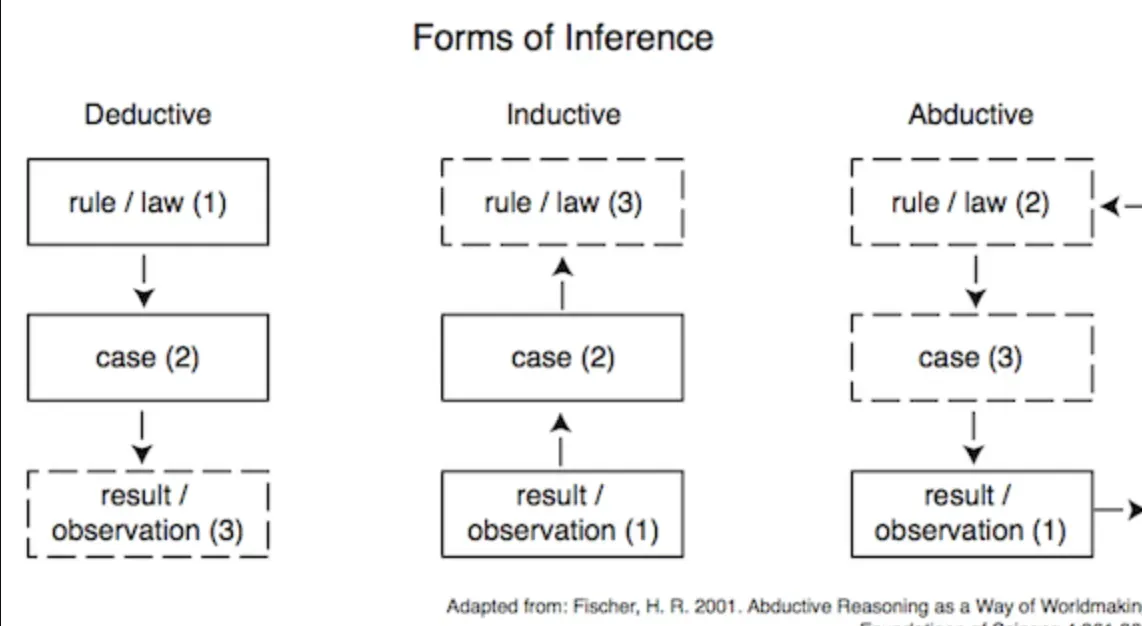
The inference process in Abductive Logic Programming can be broken down into several steps.
Observations
The process begins with an observation or a set of observations, which serves as the starting point for generating hypotheses.
Hypothesis Generation
ALP generates potential hypotheses by abducing new instances of the abducible predicates that, when combined with the current logical theory, can explain the given observations.
Hypothesis Selection
The system selects the best hypothesis based on the abductive integrity constraints and user-defined criteria, such as simplicity, likelihood, or relevance.
Hypothesis Validation
The selected hypothesis is then validated or revised, depending on the requirements of the application and any new information that becomes available.
Suggested Reading:
Declarative programming
Syntax and Semantics of ALP
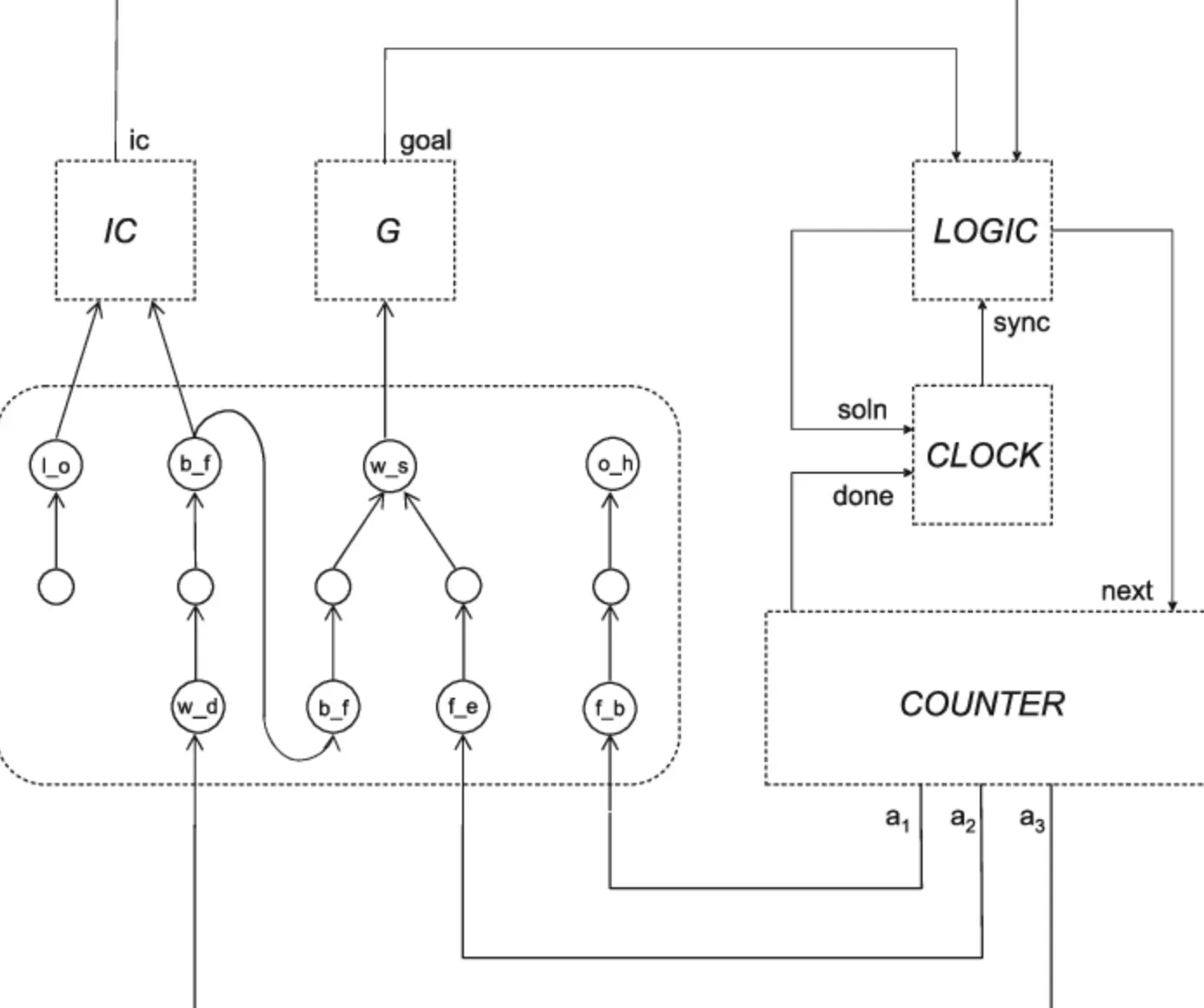
An Abductive Logic Programming language has syntax and semantics that enable the representation of knowledge and reasoning processes within the abductive framework.
Syntax
The syntax of ALP includes constructs for defining logical theories, abducible predicates, fixed predicates, and abductive integrity constraints.
Semantics
The semantics of ALP define how abductive inference is performed and how the truth values of different predicates are assigned based on the generated hypotheses.
Implementations and Extensions of ALP
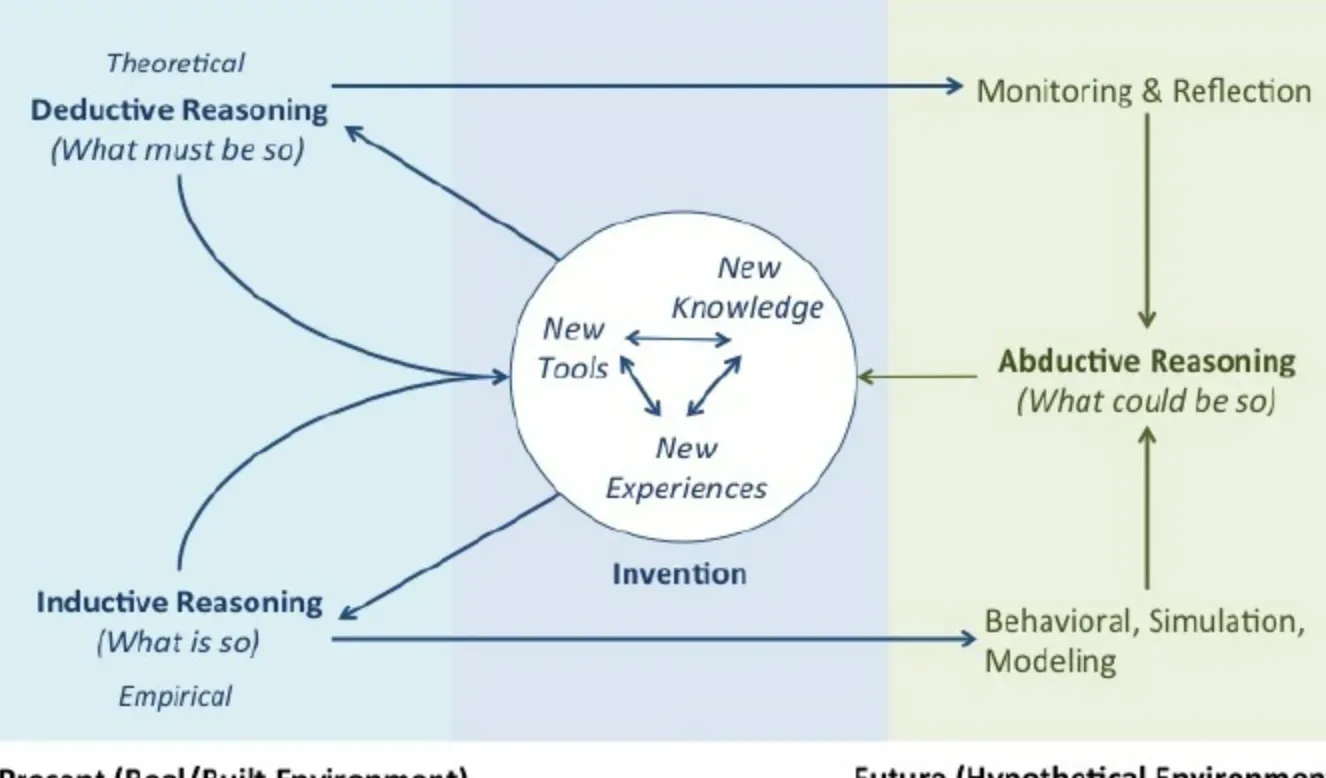
Several implementations and extensions of Abductive Logic Programming are available, depending on the specific needs of an application.
Prolog Extensions
A popular choice for implementing ALP is to use an extension of the Prolog programming language, given its underlying support for logic programming.
Other Programming Languages
Implementations of ALP also exist in various other programming languages, such as Java, C++, and Python.
Extensions
Several extensions to the basic ALP framework have been developed, including incorporating probabilistic reasoning, advanced inference engines, and integration with other forms of logic.
Limitations and Challenges of ALP
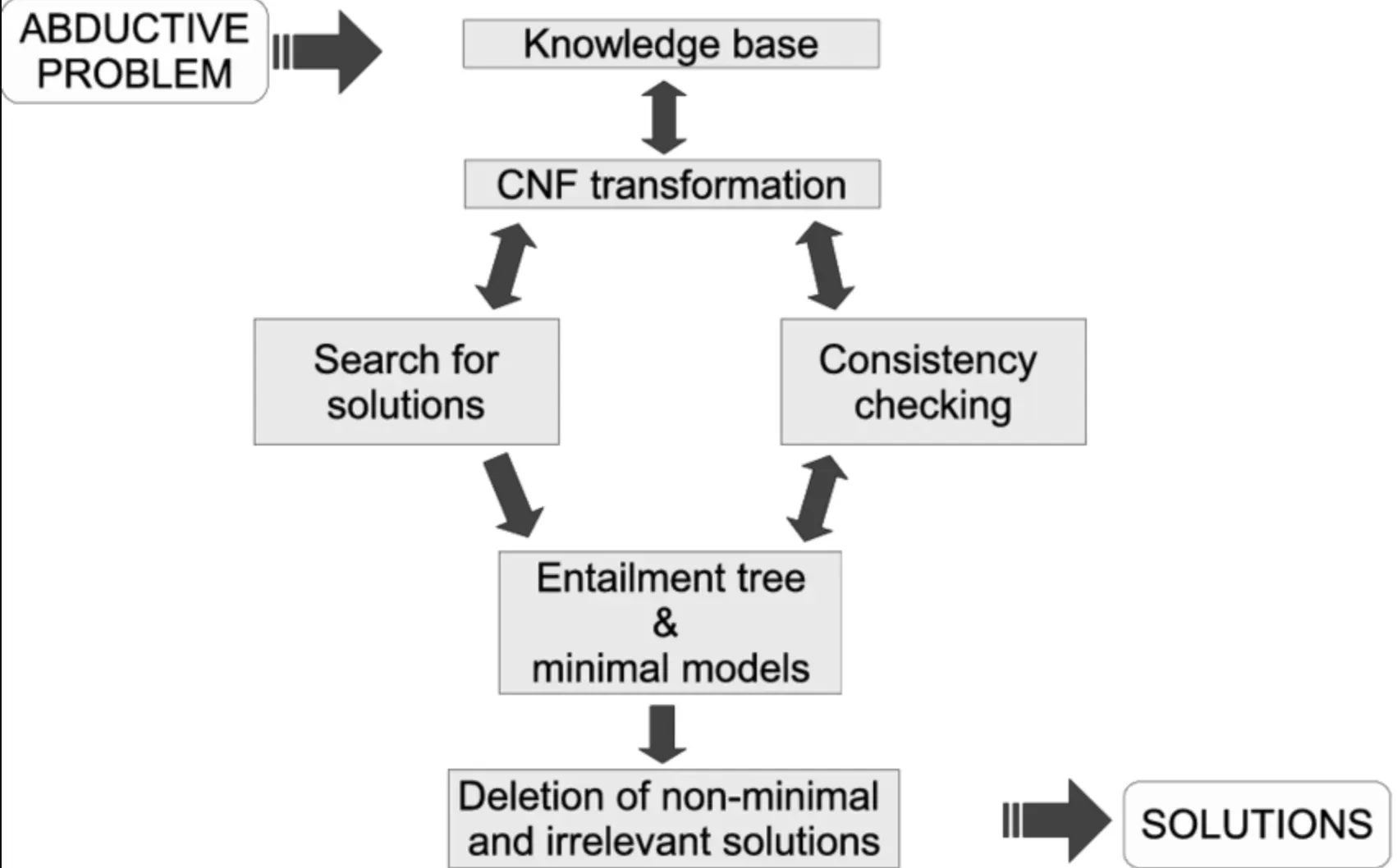
Abductive Logic Programming, despite its versatility, faces some challenges and limitations.
Computation Complexity
The process of generating and selecting hypotheses can be computationally expensive, making practical implementations of ALP challenging for some applications.
Incompleteness
ALP, like other forms of logic programming, may not always provide complete and unambiguous solutions. This can make it difficult to deal with uncertainty and ambiguities within the problem domain.
Expressiveness
While ALP is highly expressive, there may be situations where additional expressiveness is required to model certain aspects of a problem. In these cases, alternative or hybrid approaches may be necessary.
Frequently Asked Questions (FAQs)
What is Abductive Logic Programming?
Abductive Logic Programming is a combination of abductive reasoning and logic programming, providing a powerful framework for knowledge representation and inference.
What is the main difference between abduction and deduction?
Abduction is a form of logical inference that generates possible explanations for observations, while deduction is the process of deriving logically consistent conclusions from given premises.
How is ALP used in artificial intelligence?
ALP is used in various areas of AI, such as natural language processing, automated reasoning, and expert systems, as a way to model and solve complex problems.
What is an abductive integrity constraint?
Abductive integrity constraints are logical formulas that specify the conditions that must be satisfied by potential abductive hypotheses, ensuring that only consistent and plausible hypotheses are generated.
What are some examples of ALP implementations?
Examples of ALP implementations include extensions of the Prolog programming language and other languages like Java, C++, and Python. There are also several extensions to the basic ALP framework that have been developed for specific applications.
